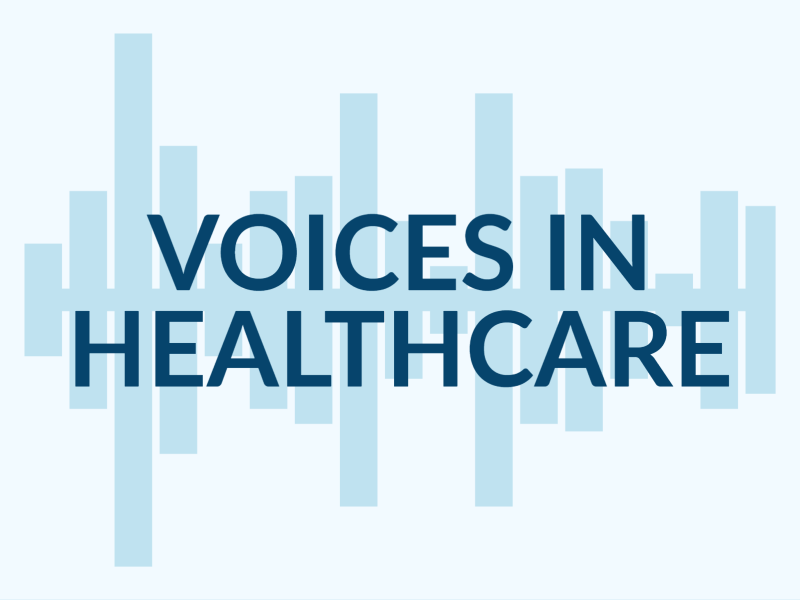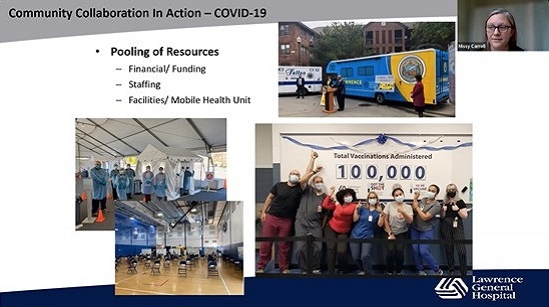MHA’s Leading the Conversation Conference: Five Key Takeaways for DE&I in Action

On March 31, MHA hosted our second annual Leading the Conversation Conference, which addressed the healthcare system’s crucial work to improve diversity, equity, and inclusion (DE&I). The virtual event featured local healthcare leaders, policy experts, and accomplished DE&I professionals, who shared their insights on how organizations can continue to support the values of DE&I and support an equitable and trusted healthcare community.
The audience received a wealth of tactics and actionable insights to bring back to their work, including the following takeaways:
Organizations must continue to translate conversations on DE&I into tangible, comprehensive, and prioritized strategies that benefit their workers and patients.
“Now is the time for us to stand united in healthcare…and not just have these conversations, but move things forward in Diversity, Equity, and Inclusion,” said Dr. Joseph Betancourt, Senior Vice President, Equity and Community Health at Massachusetts General Hospital and the Chair of MHA’s Standing Committee on Diversity, Health Equity, and Inclusion.
“Now is a pivotal time to make durable progress and the build upon it through sustained advocacy into the future,” echoed Keynote Speaker Michael Curry, President and CEO of the Massachusetts League of Community Health Centers. “We need increased intentionality, connectivity, and shared urgency.”

Developing an organization grounded in equity is about acknowledging the influence you have as a pillar of your community.
Whether hospitals and health systems are collecting informative data or building a policy agenda, affecting meaningful change starts by acknowledging your place and your influence. This means being meaningfully inclusive of all individuals—especially disenfranchised voices—during the first and all stages of developing goals and objectives. Healthcare organizations are often the largest employer, charitable partner, and economic engine in their area, and therefore, carry an enormous amount of power within and responsibility to their communities. As Oami Amarasingham, Deputy Director at Massachusetts Public Health Association said: “It’s not just about building power within disenfranchised communities, but also transferring power from where it sits right now.”
Diversity and inclusion begin with acknowledging and learning from the past, while fostering a culture of “belonging” and safety for all who engage with healthcare organizations.
Inclusion is one thing, but to feel like an active and integral part of your healthcare organization is another thing entirely. Pratt Wiley, president and CEO of The Partnership, Inc. said it best: “diversity and inclusion only matter if we’re working towards ‘belonging,’ [meaning] you can pursue goals and thrive to the maximum amount of your ability [while being] your authentic self.”
Look outside of your walls.
True success comes from engaging with community members and external organizations in a collaborative and transparent way.
Building visibility builds trust, according to Virgilio Velez, RN and DEI Program Officer at Lawrence General Hospital. Velez’s work spurred increased vaccination rates in the Lawrence community during the height of the COVID-19 pandemic. Velez credited working with external community organizations such as El Mundo (an organization that already had a trusted platform to share information) as instrumental in mitigating the COVID-19 outbreak among disenfranchised communities.

Unconscious bias permeates all spheres, including healthcare.
Acknowledging and working to undo these biases are essential to building a collaborative and inclusive work environment for our healthcare professionals.
Unconscious bias refers to underlying social stereotypes of certain groups of people that individuals develop outside of their own conscious awareness. Historically, biases have impacted healthcare both directly and indirectly in spaces like medical education and training; selection and dosage of some medications; and the use of medical equipment. It is crucial for healthcare organizations to acknowledge how they might contribute to these biases and take active steps in undoing them.
MHA would like to thank all our presenters and sponsors for another successful and insightful conference. We and our members will continue these important conversations as we push to create a more diverse, equitable, and inclusive system for all.

 Massachusetts Health & Hospital Association
Massachusetts Health & Hospital Association